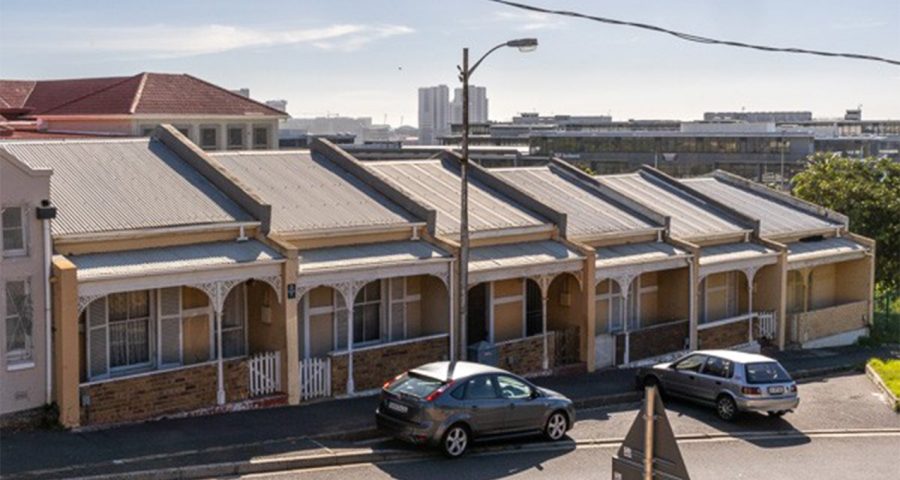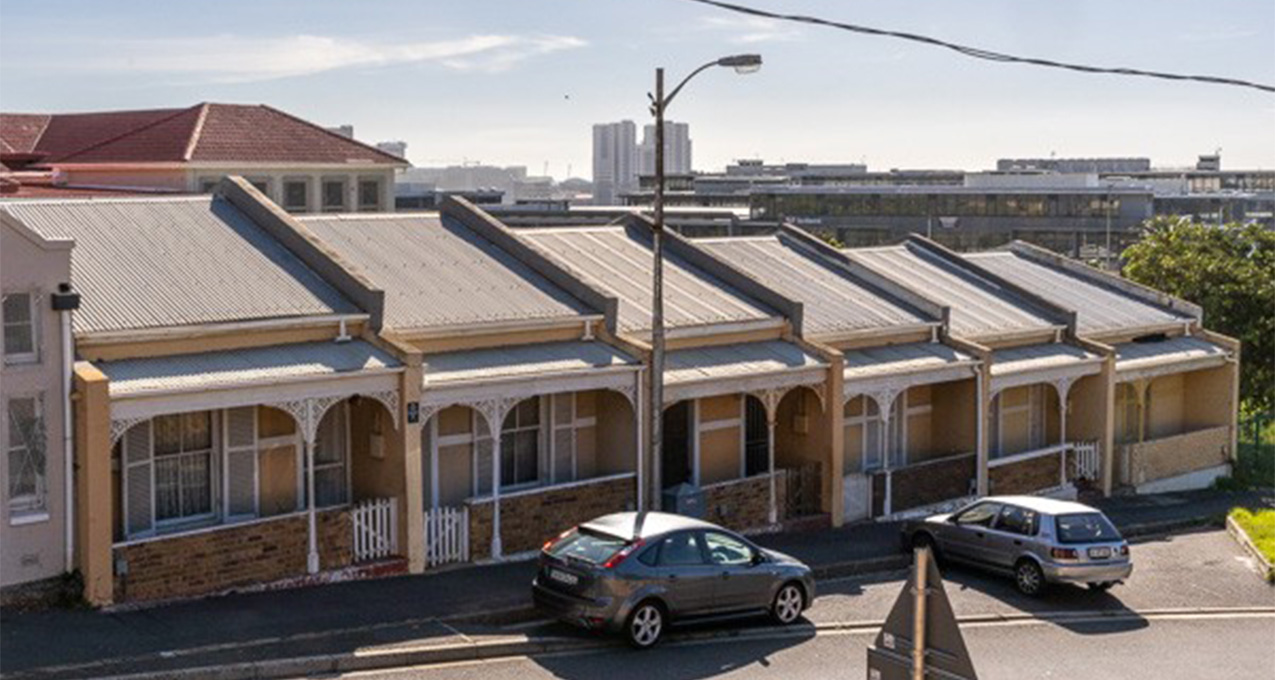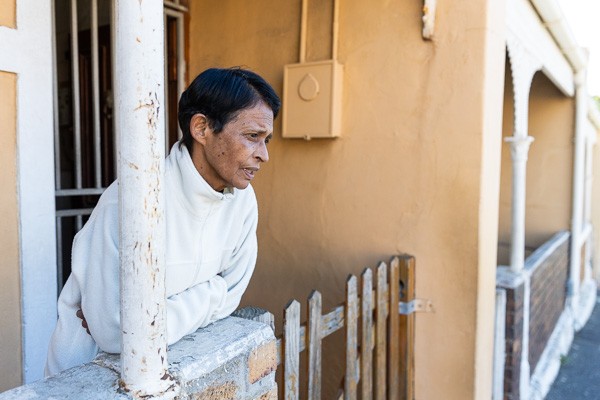
District Six families to fight eviction by new owner
After having withstood apartheid-forced removals, five District Six families are now facing eviction from their cottages on Searle Street by a private owner based in Mpumalanga. A row of Victorian cottages in District Six survived apartheid demolition after a Catholic religious order begged for their protection. The cottages were put up for sale by the […]

After having withstood apartheid-forced removals, five District Six families are now facing eviction from their cottages on Searle Street by a private owner based in Mpumalanga.
- A row of Victorian cottages in District Six survived apartheid demolition after a Catholic religious order begged for their protection.
- The cottages were put up for sale by the Holy Cross Sisters in 2014.
- Now six families are fighting an application for an eviction order brought by the new owner.
The five families, and a sixth who moved into the row of cottages in 2009, received notices on 29 June last year that their leases with the previous property owners, the Holy Cross Sisters, had been cancelled. They were given one month to vacate their homes.
When they resisted, the new owner, Mpumalanga-based businessman Etienne Du Toit, filed an application for an eviction order in August last year, and the families say he disconnected their electricity in December. The matter is set to be heard in the Western Cape High Court on 19 October.
One family has been living there since 1928, and another since 1938. Three others moved in during the 1970s. They argue that the State should expropriate the properties and offer fair compensation to the new owner. They say the State should consider the history of the location and the history of the current occupants – people of colour who avoided the forced removals that took place under the apartheid Group Areas Act.
Documents before the court include a letter dated 22 August 1969 from Cardinal McCann on behalf of the Holy Cross Sisters to the Community Development Department of the time asking that the church properties to be excluded from the District Six expropriation.
There are now fears the new owner would demolish the cottages and build a new development.
“The only reasonable deduction that one can make, in the absence of Du Toit’s stated intentions of what he wants to do with these properties is either demolish them or renovate them, the property would be to the benefit of others than the returning residents of District Six,” state the families in their opposition argument before the court.
The City of Cape Town, which is a respondent in the matter, is opposing the eviction application.
“The reason the City is opposing the order is because the respondents rejected the offer of a housing kit made within the City’s available resources,” was the City’s response to questions from GroundUp.
According to the papers filed before the court, the cottages came into Du Toit’s hands after the former owners, the Holy Cross Sisters, decided to sell them in August 2013. Two months later, the families were told that Rawson Properties had been given the mandate to sell the properties.
The sale to Du Toit, for R2.45-million (R408,333 per cottage), was concluded in September 2014, but the properties were only registered in his name in June last year.
Sean Savage, who lives in one of the cottages, said his family has lived there since 1928. He returned to his childhood home to look after his ageing aunt, who has since died.
“District Six has been part of my life and my family’s life,” said Savage. He said District Six was “more than the buildings”.
“It was the people, it was the culture.”
“As people who belonged to this church and the community, to be experiencing now what others experienced during the apartheid years when they were forced out … We know now what that feeling was.”
He said having to live without electricity for the past six months was like “going back to the stone age”.
Ita Haricombe, a pensioner who has been living in one of the cottages since 2009 and volunteers at the church and a local school, said the uncertainty was emotionally draining.
“We’re stuck and we don’t know what to do,” said Haricombe. “It’s hard on us and it’s hard on our children.”
“Where are they going to throw us?” asked Haricombe.

Ben Mwasinga, a senior manager at the South African Heritage Resources Agency (SAHRA), said while there were development pressures across the city, SAHRA would like to see existing structures in District Six protected.
He said residents had been forcibly removed 57 years ago and were now returning as public housing was being built, and it was “contradictory” that families which survived the apartheid removals should now be forced out.
But he said SAHRA recognised private property rights and would respect the court’s decision.
Frankl Weber, the attorney representing the District Six residents, said the case was unique.
“It is unique in the historical context in that we have a community of people within the District Six community, some of whose families have been there for almost 100 years, and is an opportunity to provide adequate housing in terms of the constitution,” said Weber.
Du Toit’s attorney Wayne Hufkie had not responded to requests for comment at the time of publication.
Published originally on GroundUp | By Matthew Hirsch
